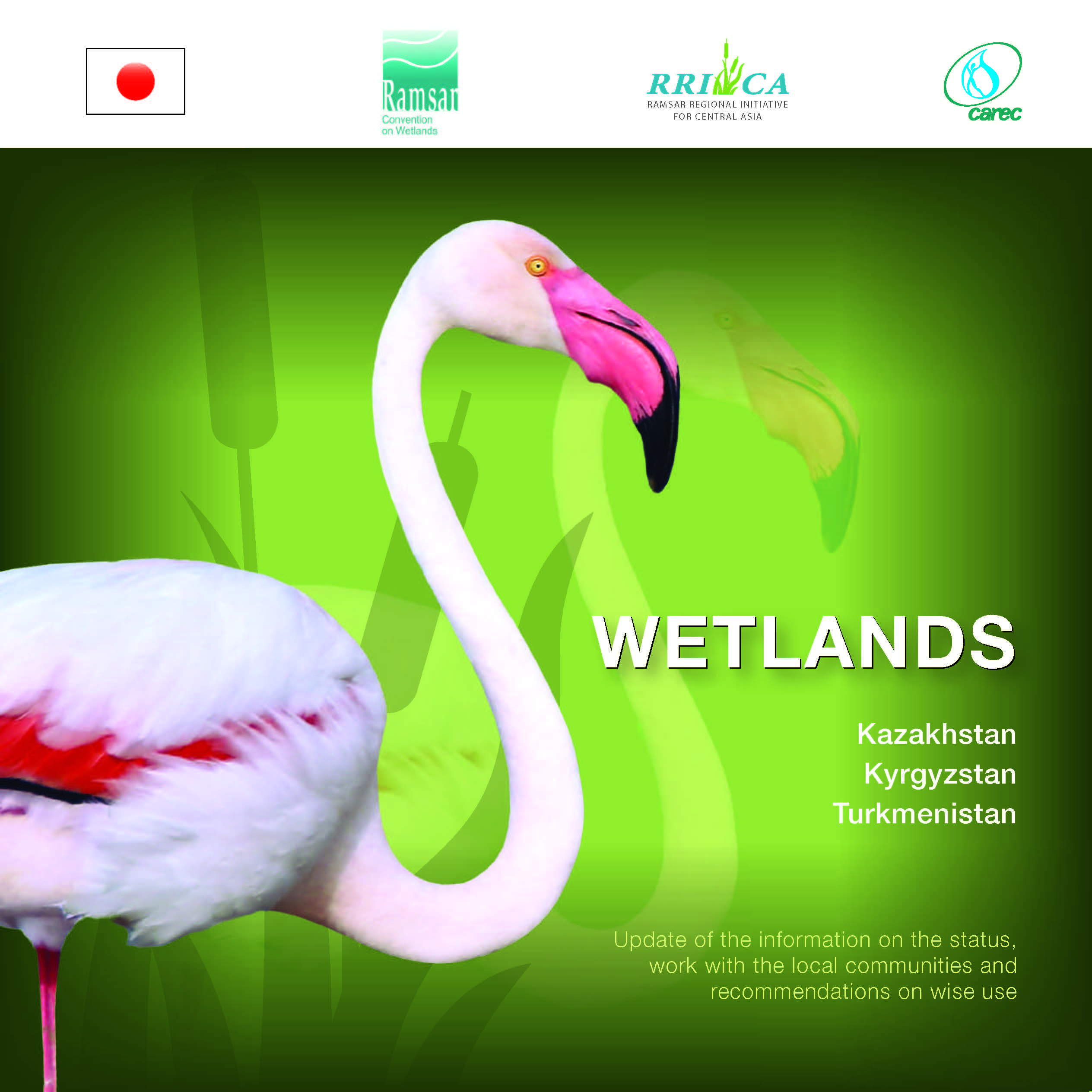The first project of the Ramsar Regional Initiative for Central Asia on the “Update of the information on the status of wetlands in Kazakhstan, Kyrgyzstan, and Turkmenistan by collection and dissemination of good practices for the conservation and sustainable use of the wetlands by local communities” ended in June 2018.
The goal of the project was to collect, update, and disseminate the information on the good practices, which the local communities have in managing and sustaining the Ramsar Sites in Kazakhstan, Kyrgyzstan, and Turkmenistan. It was approved by the Ramsar Convention Secretariat and implemented at the expense of a voluntary contribution from the Government of Japan.
Wetlands are unique, productive ecosystems where terrestrial and aquatic habitats meet. They play a critical role in maintaining many natural cycles, supporting a wide range of biodiversity and providing important ecosystem services for the life of communities. They purify, replenish and conserve fresh water; maintain biological diversity and provide habitats; stabilize climate change and store carbon; serve as a natural sponge against flooding and drought; feed and present a source of livelihood for the local population; and have high recreational, historical, scientific, and cultural values.
In accordance with the Article 1.1. of the Ramsar Convention, wetlands are areas of marsh, fen, peatland or water, whether natural or artificial, permanent or temporary, with water that is static or flowing, fresh, brackish or salt, including areas of marine water the depth of which at low tide does not exceed six metres.
Unfortunately, awareness of the need for protection and sustainable management of wetlands comes with a violation of their ecological functions, caused by serious human-induced threats. In this regard, it is especially important that the local communities living in the wetlands are aware of the value of these ecosystems and participate in their sustainable use.
Study of awareness of the local communities of the value of wetlands and services they provide and conducting discussions with locals to increase awareness of the importance of wetlands was one of the objectives of this project of the Ramsar Regional Initiative for Central Asia.
Within the period from April 2017 till June 2018 all project objectives were fully implemented:
The information on selected wetlands in Kazakhstan, Kyrgyzstan, and Turkmenistan was updated through the analysis of existing data, route-field survey, the survey among representatives of local communities and local administration.
Awareness of the local communities of the value of wetlands and services they provide was studied and discussions aimed at raising awareness of the importance of wetlands were conducted. The description of the process of the field work with the local communities is presented by the link.
Within the framework of the project the following large-scale events timed to the World Wetlands Day, involving the local population, were carried out:
1) The information on selected wetlands in Kazakhstan, Kyrgyzstan, and Turkmenistan was updated through the analysis of existing data, route-field survey, survey among representatives of local communities and local administration.
2) Awareness of the local communities of the value of wetlands and services they provide was studied and discussions aimed at raising awareness of the importance of wetlands were conducted. The description of the process of the field work with the local communities is presented by the link.
3) Within the framework of the project the following large-scale events timed to the World Wetlands Day, involving the local population, were carried out:
· World Wetland Day in the city of Turkmenbashi with the participation of employees of the reserve, the city administration and interested users of the resources of the wetland (January 21).
· The meeting devoted to the World Wetland Day, which was held on February 2 in the Ministry of Agriculture of the Republic of Kazakhstan.
· Round table devoted to the World Wetland Day, organized on February 1 at the National Institute of Deserts, Flora and Fauna of Turkmenistan.
· The meeting devoted to the World Wetland Day on the biosphere territory "Issyk-Kul".
· Lectures for students of secondary schools in Naryn and secondary schools of At-Bashinsky, Kochkorsky and Naryn districts bordering on protected areas, as well as for Pamir kyrgyz students in Naryn lyceum No. 87, a roundtable in the Karatal-Japyryk state nature reserve (February 2), an open lesson for students of 9th grade of secondary school named after Naamatbek Usonaliiev of Kazybek village of At-Bashinsky district (February 7)
· Clean-ups of solid waste and fishing nets in the coastal zone of the lakes Issyk-Kul and Chatyr-Kul.
· Final workshop in Bishkek to discuss the second phase of the action plan for the conservation of wetlands for 2018-2020.
· The event, dedicated to the World Wetland Day, on the theme "We will save wetlands of our native land!" on the basis of the Korgalzhyn nature reserve.
4) Guidelines on the best practices for wetland conservation and management in Kazakhstan, Kyrgyzstan, and Turkmenistan, were developed. It was the final result of the project.
Start reading the guidelines or download the summary.

Zhanel Karina - RRI-CA technical secretary, zhkarina@carececo.org
